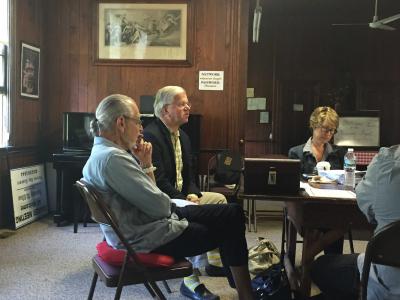Thiele Pitch on Housing

When the next New York State legislative session begins in January, Assemblyman Fred W. Thiele Jr. will once again propose a new fund for affordable housing on the East End.
Assemblyman Thiele discussed that proposal on Saturday with the Wainscott Citizens Advisory Committee, which has been grappling with the prospect of a 49-unit affordable housing complex that may be built in the hamlet. He said he will ask the Legislature to pass the Peconic Bay Region Workforce Housing Opportunity Act, which would allow towns to create community housing opportunity funds. That money would then be used to provide loans to first-time potential homeowners and support other possible housing projects.
According to the proposed legislation, “The demand of land for luxury and seasonal homes and seasonal rentals has left a short supply of housing opportunities for moderate-income and working-class local residents. The Peconic Bay region needs a balanced housing policy where there exists a variety of housing types and opportunities across the region’s economic spectrum.”
On Saturday, Assemblyman Thiele lauded East Hampton Town for its “leadership role . . . that has been bipartisan” when it comes to supporting affordable housing, but said more needs to be done.
The Peconic Bay Region Workforce Housing Opportunity Act would give towns the authority to create funds from which to offer no-interest loans of up to $250,000 — which would be flexible, based on the market — for first-time homebuyers who intend to live in those towns. The money to provide those loans would come from a fee imposed on new houses or renovations that are over a certain size relative to their lots.
“I don’t think there is one silver bullet for affordable housing,” Assemblyman Thiele said. “For young families and first-time homebuyers, the challenge is making that down payment.”
The housing fund would be similar to community preservation funds in that they are local options, he said. “It’s state legislation, but it would be up to the towns to decide whether they want to do it, and up to voters because it would be a mandatory referendum.”
Assemblyman Thiele said this approach might be preferable to towns because high-density affordable housing developments other than for senior citizens tend to face staunch opposition in many communities.
“It addresses the demographics of the community. . . . The focus wouldn’t be on building new housing, but on trying to make existing housing more affordable,” he said.
